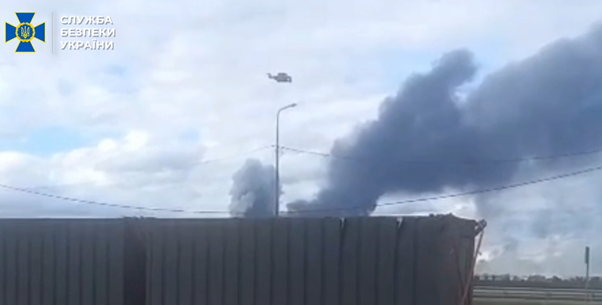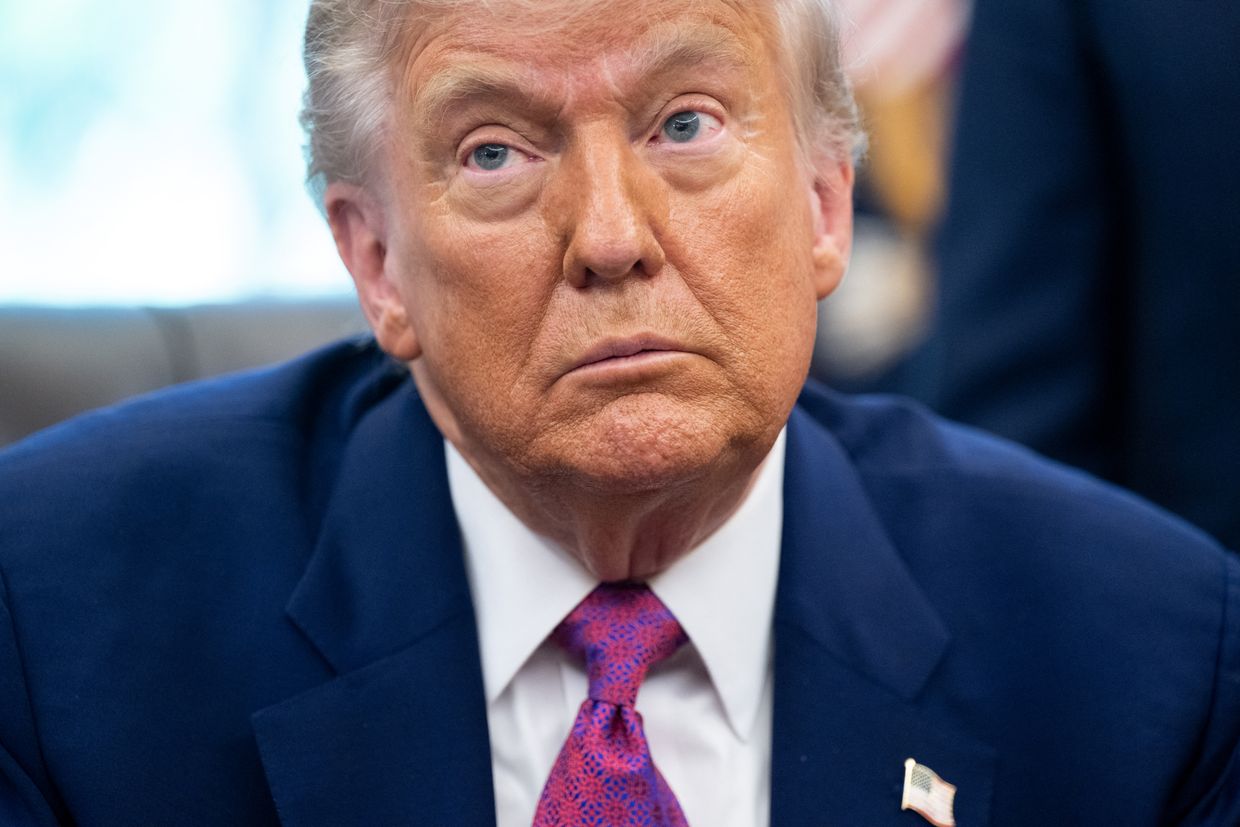Ukraine bracing for 'painful' reduction in US military aid after Hegseth announces cuts

US Secretary of Defense Pete Hegseth during a meeting in the Oval Office of the White House on Friday March 21, 2025 (Demetrius Freeman/The Washington Post via Getty Images)
Editor's note: For security reasons, the real names of the soldiers mentioned in this story have not been used.
A reduction in U.S. military aid to Ukraine would be "painful" and could have potentially "dire consequences" for the global order, Ukrainian lawmakers and soldiers have told the Kyiv Independent.
U.S. Defense Secretary Pete Hegseth on June 10 signalled the move is almost certain to happen as he discussed Washington's defense budget for 2026 during a congressional hearing.
Highlighting the Trump administration's "very different view" of the war in Ukraine compared to that of Joe Biden's, Hegseth insisted a "negotiated peaceful settlement is in the best interest of both parties and our nation's interests."
Though he didn't reveal specific details of the cuts, Ukraine is already bracing for its effects and looking for options to fill the likely sizable gap in support, lawmaker Iryna Friz, a parliamentary committee member on national security, defense, and intelligence, told the Kyiv Independent.
Friz said there is a "whole range" of military aid that Ukraine simply cannot obtain from other Western allies, and any reduction in these capabilities will be "painful."
"But I am convinced that instead of being emotionally affected by such statements (from Hegseth) or frustrated, Ukraine must demonstrate its readiness to strengthen its defense capabilities and increase communication with its partners to continue to defend its sovereignty," Friz added.
Changes in the U.S. approach
With U.S. President Donald Trump's return to the White House, Washington has sharply shifted its policy toward Ukraine. Even though Ukraine still receives military aid approved by the Biden administration, and intelligence continues to flow, Trump has already temporarily halted both once, and no new aid packages have been announced in the almost five months of Trump's presidency.
Ukraine continues to hold the line against Russia's grinding and slow advances, but any reduction in U.S. aid will likely affect Kyiv's ability to fight back against Moscow's forces, as well as undermining ongoing U.S.-led peace efforts.
"This reduction of military support might undermine our defensive capabilities, which, in turn, might translate into more casualties both among our soldiers and civilians," lawmaker Oleksandr Merezhko, the chair of the parliament's foreign affairs policy, told the Kyiv Independent.
"When (Russian President Vladimir) Putin is preparing for a summer offensive, according to some sources, it sends the wrong signal, because Putin might take it as encouragement to double down on the war efforts," Merezhko added.
The equipment gap
Since the start of the full-scale invasion, the U.S. has given Ukraine around $74 billion in military aid, and has provided weapons that have changed the course of events both on the front line and in cities hundreds of kilometers away from it.
Washington has sent Ukraine several million rounds of ammunition, tanks, armored vehicles, long-range ATACMS missiles, HIMARS, and cutting-edge Patriot air defense systems that are Ukraine's only effective defense against Russian ballistic missiles.
But under the Trump administration, as well as not receiving new military aid packages, some weapons that were intended for Ukrainian troops have been diverted elsewhere.
According to Zelensky, while then-Defense Secretary Lloyd Austin was in the office, the U.S. pledged to give Ukraine 20,000 missiles to defend against Shahed-type drones, which Russia launches almost every night against Ukrainian cities.
"It was inexpensive, but it is a special technology. We were counting on these 20,000 missiles," Zelensky said in an interview with ABC published on June 8.
"This morning, my defense minister told me that the U.S. has moved them to the Middle East."
Ukrainian soldiers interviewed by The Kyiv Independent criticized Washington's recent moves but were not surprised.
"Trump and his entire team are ridiculous cowards. They want to make a deal with (Vladimir) Putin on his terms and sacrifice part of Ukraine. It is more profitable for them," Bart, a Special Forces sniper fighting in Ukraine's East, said.
"Reducing American aid is bad for the front line. We depend on it, on their intelligence," he added.
Ihor, a Ukrainian soldier who also serves on the eastern front, echoed Bart's stance, adding the new U.S. policies will have "dire consequences" for the global order.
"The U.S. is positioning itself as weak, which will allow dictatorships worldwide to increase pressure (on other countries), and America will not interfere," he said.
What comes next?
In light of the U.S,'s shifting stance, Ukraine's European allies have pledged to step up military support but countries on the continent are dogged by a decades-long underinvestment in defense production capability.
Ukraine is therefore looking for other options, such as developing its own domestic military production and purchasing American weapons with the help of European partners.
In early June, a Ukrainian delegation led by Presidential Office head Andriy Yermak visited the U.S. to discuss further support for Ukraine's defense and potential purchases of American weapons.
"We are ready to buy some of it, especially missile defense equipment. The congressmen understand (the issue) and want to move forward with providing Ukraine with everything it needs," Yermak said on June 6 on national television.
However, following the Ukrainian delegation's visit, there has been no further action or response from Washington on potential arms supplies or weapons sales to Ukraine and its allies.
Natalia Yermak contributed to this story.












